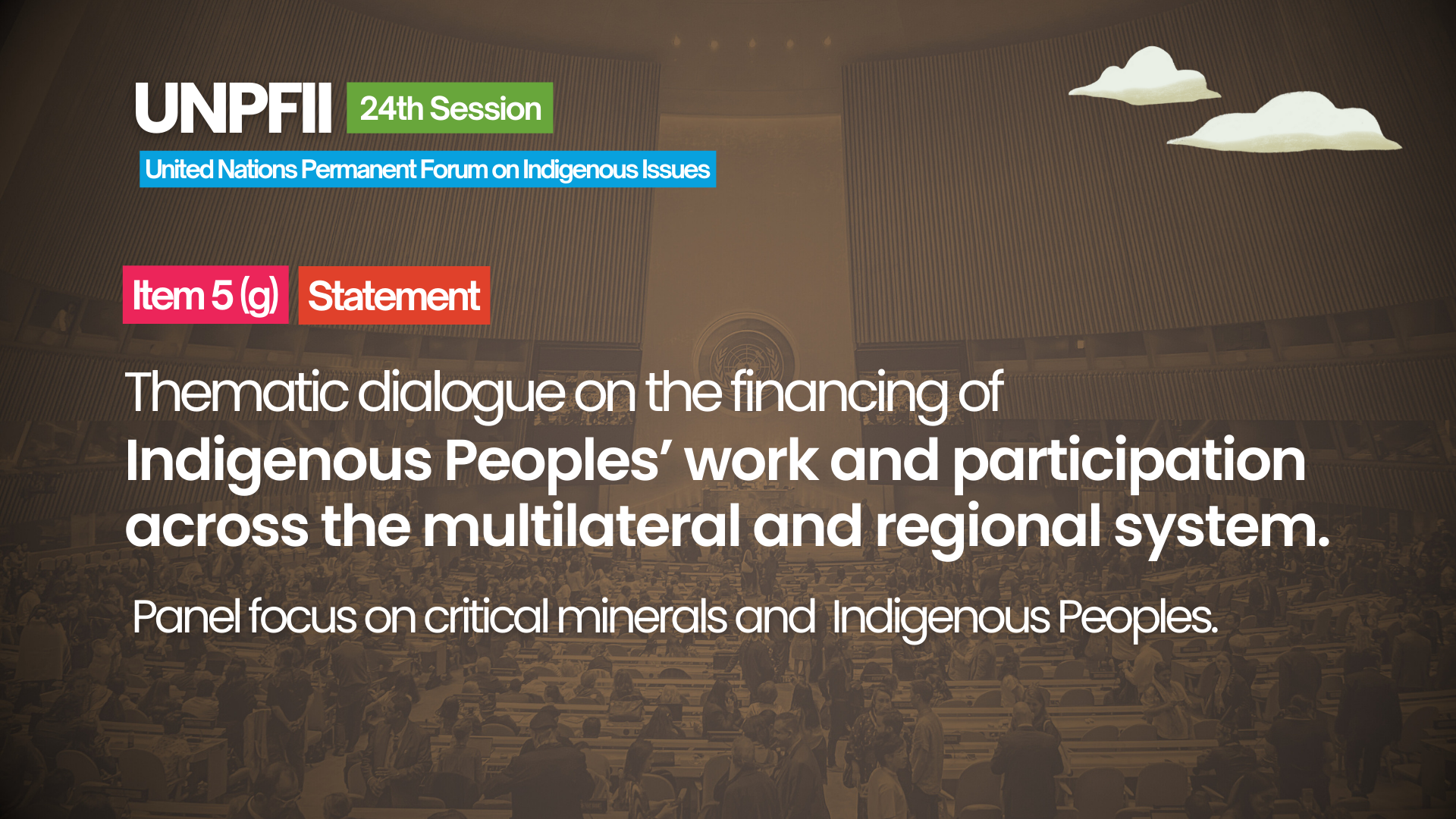April 16, 2024. Indigenous peoples have faced multiple waves of colonization and dispossession of their lands and natural resources. Mining, dams, biodiversity and now carbon markets are the driving force behind the attacks, said indigenous representatives who met to discuss the extractivist siege against them. This dialogue took place during the 23rd session of the UNPFII.
Edward Porokwa, from Tanzania, pointed out that indigenous pastoralist communities are suffering “forced conservation” resulting in displacement, even though the government says it is a voluntary departure. “They say they are doing it in the name of conservation, but when they take people out they use the land to go and hunt animals. They say what they do is good for everyone, but it affects us and we have no benefit. It's about dollars, it's about our forests, it's a competition between the government and the community for carbon credits,” he summarized.
Johnson Malih Ole Kaunga, executive director of IMPACT, denounced that carbon initiatives are false and that the whole debate around the Paris Agreement is causing indigenous peoples to be dispossessed of their lands.
For example, Kenya is changing its legal framework to appropriate indigenous territory, so it is key that indigenous peoples can secure title to their lands. He warned that 80% of carbon investment is Western: they make people think they are conserving land, but the funds are white and the money goes back to the West. People think they are going to get money, but they end up distributing only 10% to the landowners. “They act as if we indigenous people can't manage our land, and what they want is for it to have ‘value,’” he added.
Daniel Kobei, from Kenya, recalled that the Ogiek won a case before the African Court regarding the displacement of the Mau forest. However, what they have received has not been compliance with the judgment, but constant harassment and attempts to divide the community. The origin of this harassment lies in the fact that the government wants to become a champion against climate change through the carbon market, but on that path it is denying the rights of indigenous peoples. “They tell us to leave, but where are we going to go?” he said.
The West Papuan participant, whose name is withheld because of serious security risks, said Indonesia has stolen their territory and their struggle has been stigmatized as separatist and terrorist, forcing them to flee. Mining companies tell them they are a rebel group. “Please talk about our land, talk about West Papua. We don't see any future with Indonesia,” he cried out.
Joan Carling, from the Philippines, noted that the situation is worrying in her country. Seventy-five percent of the forest cover is on indigenous peoples' land, threatened by deforestation, mining and more recently by dams. This situation occurs despite the fact that the lands are titled. Their peoples also suffer from militarization and violence: “In 2022 alone, at IPRI we documented 21 cases of assassinations, 6 illegal arrests, more than 40 leaders facing false criminal charges, and many organizations being labeled as supporting terrorists,” he reported.
Orlando Rayo Acosta, from ONIC in Colombia, considered that one of the challenges is to take care of the indigenous knowledge system, which allows to maintain governance and balance between people and nature. “Peace is not a right, it is a duty”, he said, after warning that the war “has run over us”.




